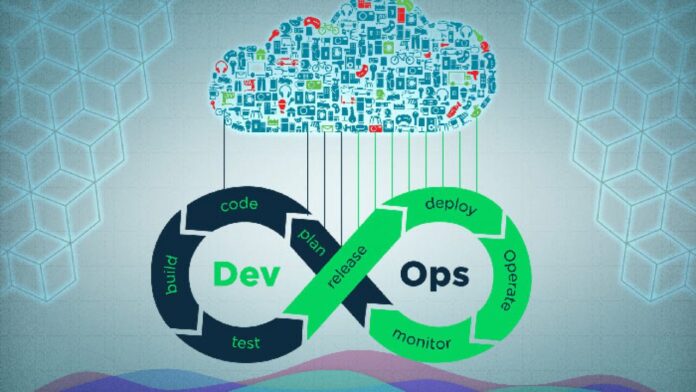Hiring managers are becoming more savvy every day. They know that people seek cloud engineer jobs. It’s a hot market right now. Read on to find out the best way to become a starting cloud engineer. Follow our five steps and you can make sure that you gain an advantage that is sorely needed by employers and covered by potential employees.
One of the hottest jobs on the market for 2024 is Cloud Engineer. According to the Bureau of Labor Statistics, the job outlook for IT professionals like cloud engineers is growing at a much faster pace than other occupations. This can mean that now is the time to start pursuing this career path.
If you’re not familiar with what this job entails, here’s a quick rundown.

Who is a Cloud Engineer?
The term Cloud Engineer has become a bit of a catchall for anyone who works with public or private clouds.
They are the techies who work behind the scenes to make sure that products, apps and services are designed, built, implemented and maintained successfully in the cloud. They do this by designing, building and implementing cloud systems from scratch and ensuring that everything is running smoothly at all times. They also test their creations to make sure they perform as intended.
They also play an important role in data security, as they design and implement security measures that protect data from unauthorized access or loss.
They are also involved in developing and executing various strategies for managing applications on the cloud. For example, they need to decide which applications should be moved to cloud storage, how data will be migrated, how backups will be implemented, and so on.
Cloud engineering is an ideal job for anyone interested in computer science who also wants to work in a role with significant business impact, as this job is all about finding the best way to use technology to fulfil business needs.
Steps to Becoming a Sought-after Cloud Engineer
Here are some steps you should consider taking if you want to become a cloud engineer (even if you don’t have a degree in computer science):

Become fluent in a variety of programming languages and frameworks
Why? Because they need to know how to code, as well as read and modify code written by someone else.
There are many programming languages, but some are more popular for cloud computing than others. The best languages for you will depend on your background, expertise and goals.
Here’s a list of common languages used by cloud engineers: C ++, Java, Python, Ruby, and Go.
A framework is a library of code that developers use to write programs more efficiently. Learning frameworks such as Hadoop (for big data), or Django (for Python applications) is also important for becoming a cloud engineer.
You’ll also want to get familiar with databases like MySQL.
You must know the differences in how these languages are used and which is best for each application.
Have the expertise to work with cloud technologies like AWS or Azure
Amazon Web Services (AWS) and Microsoft Azure are cloud computing platforms that provide on-demand compute, networking, database, and other services hosted by the leading technology companies. As a result of the clear benefits of turning to the cloud, there’s a huge demand for IT professionals who can help organizations make the transition.
At a minimum:
- You need to know how to create and manage virtual machines in the cloud;
- Have experience with containers and container orchestration using Kubernetes, ECS, or Swarm;
- Deploy applications in the cloud using DevOps practices and tools like Git, Chef, and Ansible;
- Understand distributed computing principles like CAP theorem and consensus protocols;
- Comprehend immutable infrastructure paradigms such as serverless, microservices architecture and twelve-factor applications;
- Become familiar with the cloud provider’s APIs and SDKs.
It’s essential to be familiar with the various services such as compute and storage, including virtual machines, containers, serverless computing, storage and databases. An example is AWS Lambda (a compute service on AWS) which allows developers to run code without the hassle of managing servers and compute resources. Read more about AWS (Amazon web services) here. A. Cloud engineers must also understand how these technologies integrate with other applications such as Slack.

Gain good knowledge of DevOps
DeVOps is not just a buzzword but an important skill for cloud engineers. DeVOps can be likened to the glue that sticks together different aspects of cloud engineering. Hence, aspiring they should gain a good understanding about DevOps and its various principles.
It’s an approach that requires integration between development and operations teams that use cloud computing tools and methodologies in order to shorten the time it takes for changes to be developed into products or services through automation, collaboration, and monitoring in production environments.
Secondly, as a cloud engineer, you need to be conversant with Continuous integration/Continuous delivery (CI/CD) processes. With continuous integration, developers merge their code several times a day into a shared repository. It also involves running automated tests on that code, so issues can be identified quickly. Continuous delivery is the logical conclusion of continuous integration: it automates deployment once code has passed all tests.
Also, learn to use automation and collaboration tools like Chef, Puppet and Ansible.
Knowledge of configuration management and automation tools is essential for any cloud engineer. In fact, companies are looking for candidates who can architect their applications using these tools, deploy them in the cloud and automate everything that is possible to automate.
Gain practical working experience
While studying is important if you want to become a cloud engineer, it is equally important that you gain some practical experience with the software that is used in cloud engineering jobs.
But since cloud engineers deal with some of the most important aspects of corporate IT systems, employers don’t want someone who’s just learning on the job. You’ll need some experience under your belt before anyone will trust you with their mission-critical applications and data.
There are a few things you can do:
Find a company that uses cloud computing and ask if they’ll hire you as an intern or apprentice. You might have to spend some time learning the ropes without getting paid, but once you learn the system, it should be easy enough to turn that into a full-time job.
Start your own business or project. This could be anything from setting up your own service website or registering on freelance marketplaces as a service provider.
In the end, you’ll not only build confidence in solving real-life challenges, but this would give you an opportunity to build your portfolio, resume, and network in the industry.

On building a portfolio
The most important thing to do is build a quality portfolio that shows off all the great projects you’ve worked on, whether they are personal or professional. In case you are new to this field and don’t have a large portfolio yet, you can always start by doing some small open source projects or building a simple website for a friend or family member.
To get started, here are six tips to help you build a portfolio that showcases your skills and experience.
- List relevant tools and technologies you’ve worked with.
- Explain how you’ve used cloud services in the past to innovate, save money or solve problems.
- Include any certifications you’ve earned (such as Amazon Web Services AWS Certified Solutions Architect), and add links to your profiles on sites like Stack Overflow or LinkedIn.
- Describe any open source projects you’ve contributed to or created. If possible, include links to the code.
- Show off your skills by including screenshots of your work, diagrams and descriptions of your projects and examples of infrastructure you’ve designed and implemented from scratch.
Consider certification as a cloud engineer
Certification is a great way to validate your skills, and to show that you can do the work, which will definitely help if someone needs to choose between candidates who are equally qualified.
Get the right cloud certifications:
AWS, Microsoft Azure, Google Cloud Platform and IBM Bluemix are some of the most popular platforms in cloud computing services. Each platform has its own certification program.
The AWS certification program is designed to identify those with skills in designing, deploying and operating applications on the AWS platform. Microsoft Azure offers several associate-level credentials that show a professional’s ability to design and implement solutions using Azure technologies.
The most popular ones among employers are AWS Certified Solutions Architect and Microsoft Certified Solutions Expert: Cloud Platform and Infrastructure.

Possess solid soft skills
They must collaborate with other teams such as development and operations to ensure that their organization’s cloud infrastructure runs smoothly and efficiently.
Additionally, as an added advantage, they must be able to discuss complex technical information in layman’s terms and provide recommendations that align with business goals. They must also stay up-to-date on technological innovations, as well as best practices for implementing cloud solutions.
Conclusion
They are nothing but hot property these days at IT companies from coast to coast. The good news is that you don’t have to work for a big company to learn how to become a cloud engineer; you can learn everything you need on your own time. You might be surprised to find that there are plenty of excellent resources available that can teach you the skills you need to become a cloud engineer.
For instance, AWS offers some amazing resources to get started. By signing up for one or more of these classes, you’ll have an opportunity to learn the ins and outs of cloud computing, and within 4–6 months you’ll be ready to step into your very first cloud engineering position. There’s a world of opportunities just waiting for those who are willing to embrace them, and only you can decide whether or not you’ll be the person to seize them. So get started today.





![Calgary’s Hottest Neighborhoods for Luxury Homebuyers [2024]](https://thewashingtonote.com/wp-content/uploads/2024/04/Calgary-324x160.png)



